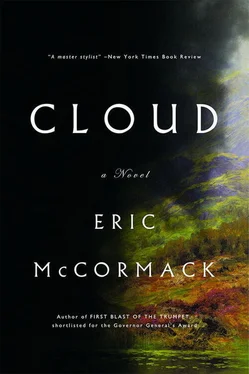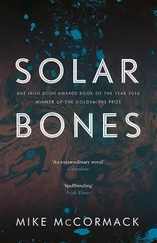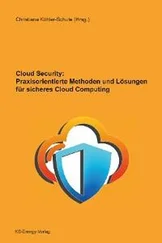I didn’t know what to make of that. So I took her hand and we went and sat on a couch before the big fireplace. A fire had been lit in it earlier to fend off the night chills. I had my arm around her and the wine gave me courage. I told her once again, as I had many times in the last weeks, that I loved her. Again I hoped she’d tell me she loved me too, and again she didn’t. But she looked me in the eye.
“Words are so easily mistaken for the real thing,” she said.
I denied that passionately. I wasn’t making any mistake. I knew I loved her and it had nothing to do with words. Anyway, my love was above words; it was an intuition. I just knew, from the very core of my being, that I loved her.
For the first time in all the weeks I’d known her, she laughed outright.
“You’re incorrigible, Harry,” she said. “Intuitions aren’t any more right about love than they are about stars. I mean, look at us. We think we’re sitting here quite securely talking, when we’re actually whirling around the sun at thousands of miles an hour. Our intuition lets us down all the time — what looks like a cat lying in a corner turns out to be a pair of socks, and vice versa.”
I could tell that the wine had affected her, too. At one point she deliberately leaned her body in against me.
“How do you know that what you think is love isn’t actually lust?” she said.
Even though the feel of her was enough to make me wonder if she might be right, I wouldn’t concede. So she became serious again.
“If you did love me, it would have to be on the basis of knowing the true me,” she said. “But there are many things you don’t know about me. If you knew them, they’d tip the scales and outweigh what you think is love. They’d turn it into something not quite so elevated.”
This wasn’t the first time she’d hinted that she might have secrets I wouldn’t like. But I just kept repeating I loved her as though it was an incantation. As though repeating the words would somehow make up for the lack of her saying them to me in return.
And she kept on looking into my eyes, her brow furrowed as though she couldn’t make up her mind about me.
“I wonder,” she said eventually.
IT WAS AROUND midnight and I was about to pour us another glass of wine when the bell on the ship’s clock upstairs began to sound.
“Listen,” she said. The bell rang eight times.
“The Middle Watch is about to begin,” she said. “My father told me that’s what the sailors call the watch between midnight and eight in the morning. I’ll go and settle him in for the night. Come with me — there’s something you need to see, and now’s as good a time as any.”
So I followed her through the door in the wainscoting and into the library.
Her father was lying on the couch by the fireplace, as before. That faint smell of incense was in the air. On a little table beside him were the remnants of his dinner. The striped cat was sitting beside one of the plates, cleaning its whiskers. It growled at me and slithered back onto the couch beside him.
“Ready for your medicine?” Miriam said to her father.
He smiled, showing uneven, yellowish teeth. His eyes looked feverish.
She went to a low cupboard near the fireplace and rummaged in a drawer while I thanked him for allowing her to give me one of his books. He paid no attention whatever to me, just watched Miriam intently as she came back to the couch. She was holding what looked like a jewellery box and some kind of old-fashioned smoking pipe — a thin tube about two feet long with a tiny bowl on the end.
Now she opened the box and took out a pouch of tobacco and carefully packed the pipe, which had what looked like oriental lettering engraved along its stem. She lit a match, put the pipe to her lips, and puffed on it several times till it was glowing. Her father now lay on his side on the couch, his head on a cushion, staring up at her. She handed the pipe to him and he held it with tremulous fingers and puffed on it.
From the jewellery box, she now took a little medicine bottle full of a black liquid. She tilted the bottle over the bowl and poured a slow, heavy drop of the liquid into it. The smoke immediately thickened and that incense smell became much more noticeable.
He sucked steadily on the pipe for a minute or two, sighing from time to time between puffs. We watched without speaking.
Over a period of about ten minutes, this procedure of filling the pipe was repeated twice more. The feverish look in his eyes began to dim so that now when he looked at Miriam and me, he seemed quite human. Even the cat, curled up beside him, was blinking contentedly.
Miriam at last took the pipe from his loose fingers.
“We’ll leave you now,” she said to him. “Rest well.”
He sighed and closed his eyes. She put the pipe and the box back in the drawer. We gathered together his used dinner things and took them to the kitchen. Once there, she answered my unasked question.
“Opium,” she said. “He got into the habit when he used to trade in the Far East. He has stock enough to last him a lifetime. His hands are too shaky now to deal with delicate things like his pipe, so I have to do it for him.”
I’d read about the perils of opium and was quite shocked. I was going to ask her more about his habit, and whether she ought not to try somehow to cure him of it. But just as I about to speak she put her hand on my arm and looked into my eyes.
“It’s a bit late now for you to be crossing the moors,” she said. “I’d really like it if you just stayed here with me tonight.”
My heart leaped.
Miriam then switched off the kitchen and living-room lights, and arm in arm we climbed the stairs to her bedroom.
EVENTUALLY, we fell asleep, despite the intermittent ringing of the ship’s bell next door.
But with the three a.m. ringing, I woke because of another noise coming from outside the house. Miriam was fast asleep, so I carefully disentangled myself from her and slipped out of bed onto the bare wooden floor. I tiptoed to the window and looked down into the garden. It was a moonlit night so I could see very clearly.
Her father, wrapped in a blanket, was sitting there on a garden bench peering up at the night sky through the brass telescope. I’d only been looking at him for a moment when he suddenly took the telescope away from his eye and stared right up at me before I could duck out of sight. He waved his thin hand and smiled. His face was hideous in the moonlight.
I quickly retreated to the bed. Miriam noticed and snuggled against me.
“You’re cold,” she said.
“I heard a noise outside,” I said. “It was your father out watching the stars. He saw me — he knows I’m here with you.”
“Of course he does. Don’t worry about it,” she said. “Here, let me warm you up.”
IN THE MORNING, I sat in the kitchen drinking coffee. Miriam had gone to see to her father — apparently he’d slept in the library after his star-spotting was done. She came back after a while with the smell of incense on her clothing.
“He needed his medicine,” she said. “That’ll keep him happy for a few hours. I’m going upstairs to get you that book I mentioned.”
She climbed the stairs and was back in a moment with a small volume.
“Here you are.” She handed it to me.
The covers were warped and many of the pages were crinkled and salt-stained — I could smell the ocean in them. The book was called An Upland Tale .
“It’s one of those traditional stories from the Uplands,” she said. “Some of the pages are lost, but the main section’s there and it’s still quite legible for the most part, considering what it’s been through. I wonder what you’ll think of it.”
Читать дальше











